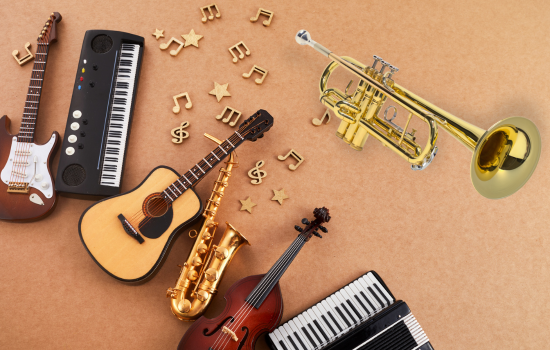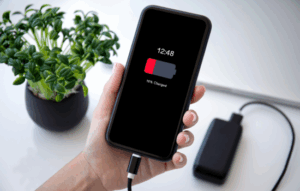Advertisements
Can you imagine mastering the trumpet and, at the same time, acquiring skills on other musical instruments? Whether it's to express yourself musically, participate in a band, or just for fun, learning to play an instrument can transform your life.
In this article, we'll take a practical and dynamic look at how to start playing the trumpet, highlighting tips that also apply to learning other instruments such as the piano, guitar, and saxophone. Get ready to embark on a musical journey that combines discipline, passion, and technology!
Advertisements
Why Learn to Play Musical Instruments?
Regardless of the instrument you choose, learning to play music offers numerous benefits:
See also
Advertisements
- Master the Art of Buying Motorcycles at Auction
- Discover the Secrets of Buying a House at Auction
- Learn How to Buy Cars at Auctions
- Learn Piano: A Comprehensive Guide to Mastering the Keyboard
- Learn Accordion Quickly: Apps to Master the Instrument
- Cognitive and Motor Development:
Playing an instrument improves coordination, memory, and logical reasoning. For example, the trumpet requires embouchure and breath control, while the piano encourages independent playing of the hands. - Expression and Creativity:
Music is an art form that allows us to express emotions. Whether it's vibrant trumpet solos or harmonious guitar chords, each instrument has its own charm. - Discipline and Patience:
Learning to play requires constant practice. Establishing a study routine—even if it's short—is essential for progress, whether you're just starting out on the trumpet, piano, or saxophone. - Social and Professional Opportunities:
Mastering an instrument can open doors to participating in musical groups, performances, and even job opportunities.
Getting Started with the Trumpet: First Steps
Know Your Instrument
For those who want to learn the trumpet, the first thing is to familiarize yourself with the instrument:
- Parts of the Trumpet:
Learn the function of each component: the mouthpiece, which is the air entry point, the body of the instrument, and the valves that modulate the notes. - Care and Maintenance:
Learn how to clean and care for your trumpet to ensure quality sound and prolong its life.
Set Your Musical Goals
Define clear goals to guide your learning:
- Short Term Goals:
Learn the correct lip position (embouchure) and practice simple scales, such as C major. - Medium Term Objectives:
Work on the coordination between breathing and valves, and begin to play basic melodies. - Long Term Goals:
Visualize playing more elaborate pieces, improvising solos, and even composing your own melodies.
Create a Practice Routine
Regularity is key:
- Daily Sessions:
Spend 20 to 30 minutes a day playing the trumpet. Regular practice helps solidify your technique and develop muscle memory. - Warm-up Exercises:
Begin each session with breathing exercises and scales to prepare your muscles and fine-tune your control. - Review and Continuous Learning:
Alternate between reviewing what you've learned and taking on new challenges.
Expand Your Horizon: Other Instruments
Although the trumpet is an excellent starting point, learning other instruments can enrich your musical experience. Here's how some basic concepts apply to other instruments:
Piano
- Coordination and Independence:
Practicing scales and arpeggios on the piano improves hand coordination and strengthens your understanding of music theory. - Reading Scores:
Learning to read sheet music on the piano will help you play pieces for other instruments, expanding your repertoire.
Guitar
- Rhythm and Harmony:
Mastering chords and transitions on the guitar is essential for keeping time, a skill that also benefits the trumpet. - Versatility:
The violin allows for a wide variety of playing styles and requires daily dedication, similar to the trumpet.
Saxophone
- Blowing and Embouchure:
Like the trumpet, the saxophone is a wind instrument that requires breath and embouchure control. - Improvisation:
Both are used in genres like jazz, and learning improvisation techniques in one can improve your performance in the other.
Tools and Applications to Accelerate Learning
Technology is a great ally on your musical journey. Here are some apps that can help you improve your technique and accelerate your learning:
Trumpet Tutor (or Learn Trumpet)
- Characteristics:
Offers interactive, step-by-step lessons that teach everything from the basics to more advanced exercises. - Benefits:
Provides real-time feedback and a diverse library of songs.


Yousician
- Cross-platform:
Yousician teaches several instruments, including the trumpet, using a gamified system that makes learning fun and motivating. - Instant Feedback:
Evaluates your performance and gives you tips for improvement.


Flowkey and Simply Piano
- For Piano:
These apps offer detailed lessons and interactive practice, helping you consolidate music theory and piano technique, complementing your overall learning.
Educational Platforms (Udemy, Coursera)
- Online Courses:
There are specialized courses in musical techniques, music reading, and music fundamentals that give you a solid foundation for learning any instrument.
Additional Tips for Effective Learning
- Join Musical Communities:
Participate in music-related forums, Facebook groups, or Reddit communities to share experiences and stay motivated. - Record Your Sessions:
Recording your practices allows you to evaluate your progress and correct mistakes. - Set Realistic Goals:
Set daily, weekly, and monthly goals to stay focused and measure your progress. - Seek Feedback:
Share your recordings or participate in classes to receive tips and improve your technique. - Maintain a Positive Attitude:
Perseverance and patience are essential on the path to mastering any instrument.

Conclusion
Mastering the trumpet can be the first step toward a rewarding musical adventure, and the fundamentals you learn can be applied to other instruments, such as the piano, guitar, and saxophone. With dedication, consistent practice, and the support of digital apps like Trumpet Tutor and Yousician, you can progress quickly and develop a solid musical foundation.
Remember that each instrument has its own unique characteristics, but the principles of musical learning—daily practice, studying theory, and seeking feedback—are universal. Start today, organize your sessions, participate in musical communities, and let your passion for music guide you toward mastering multiple instruments. Good luck and happy learning!




